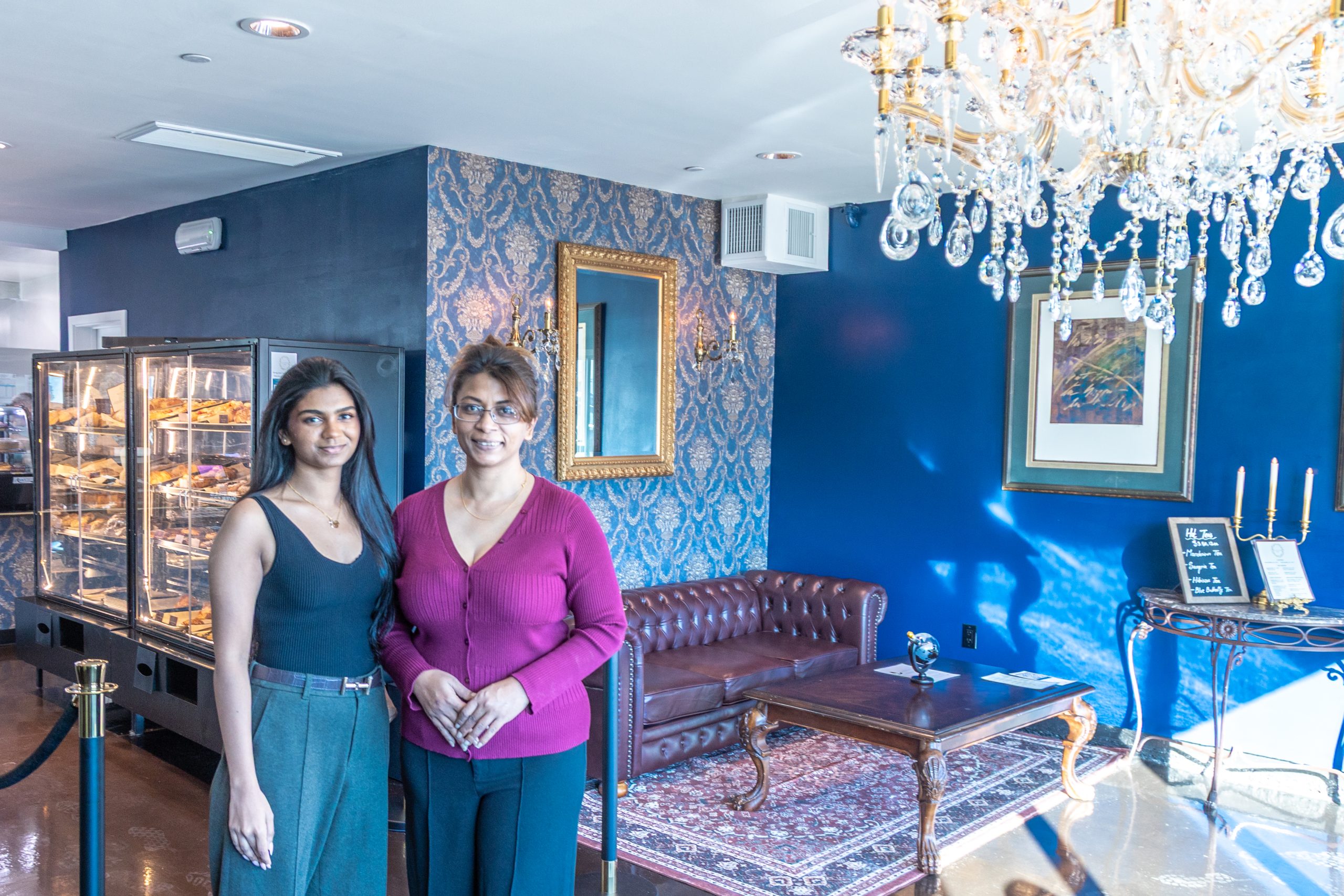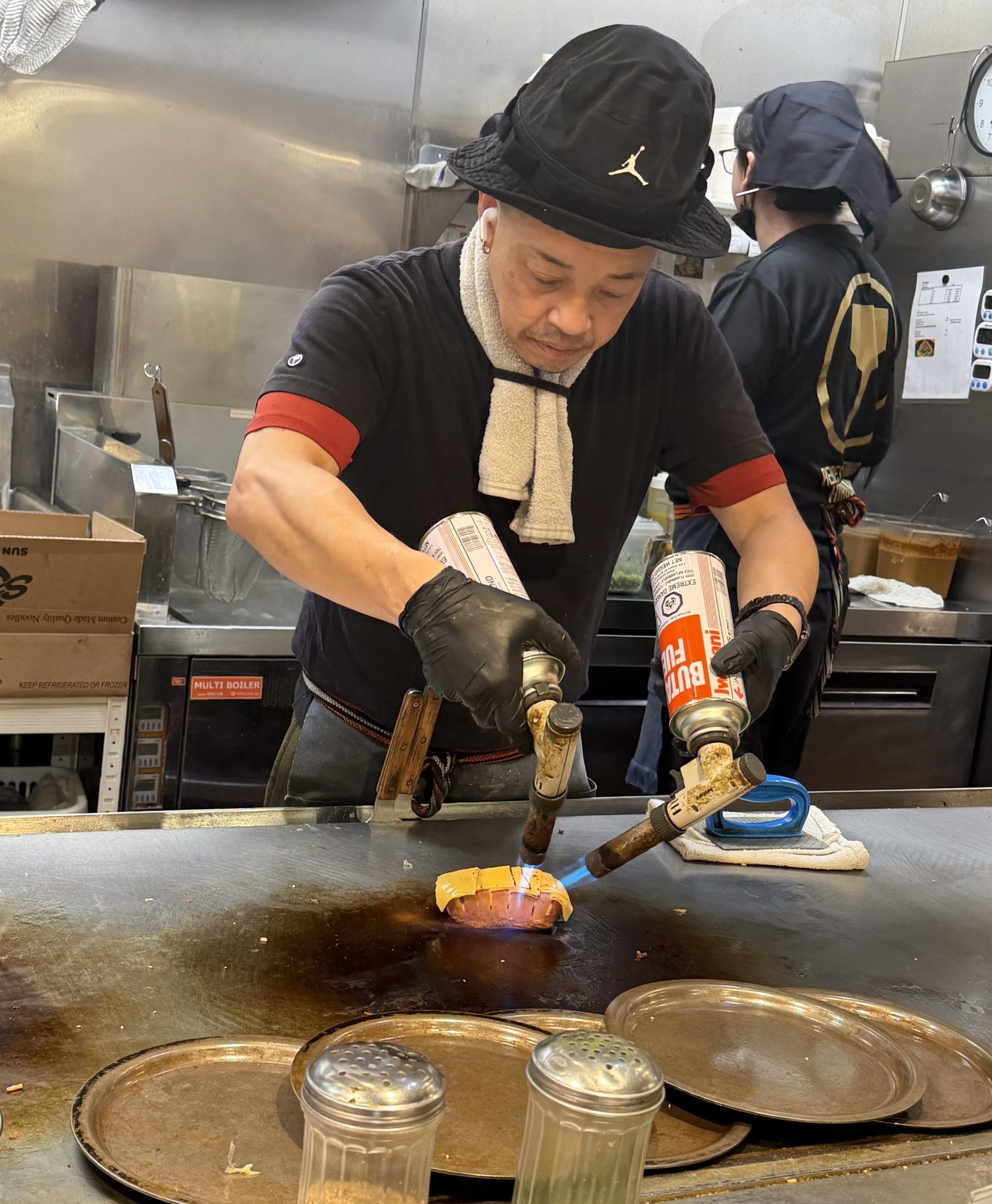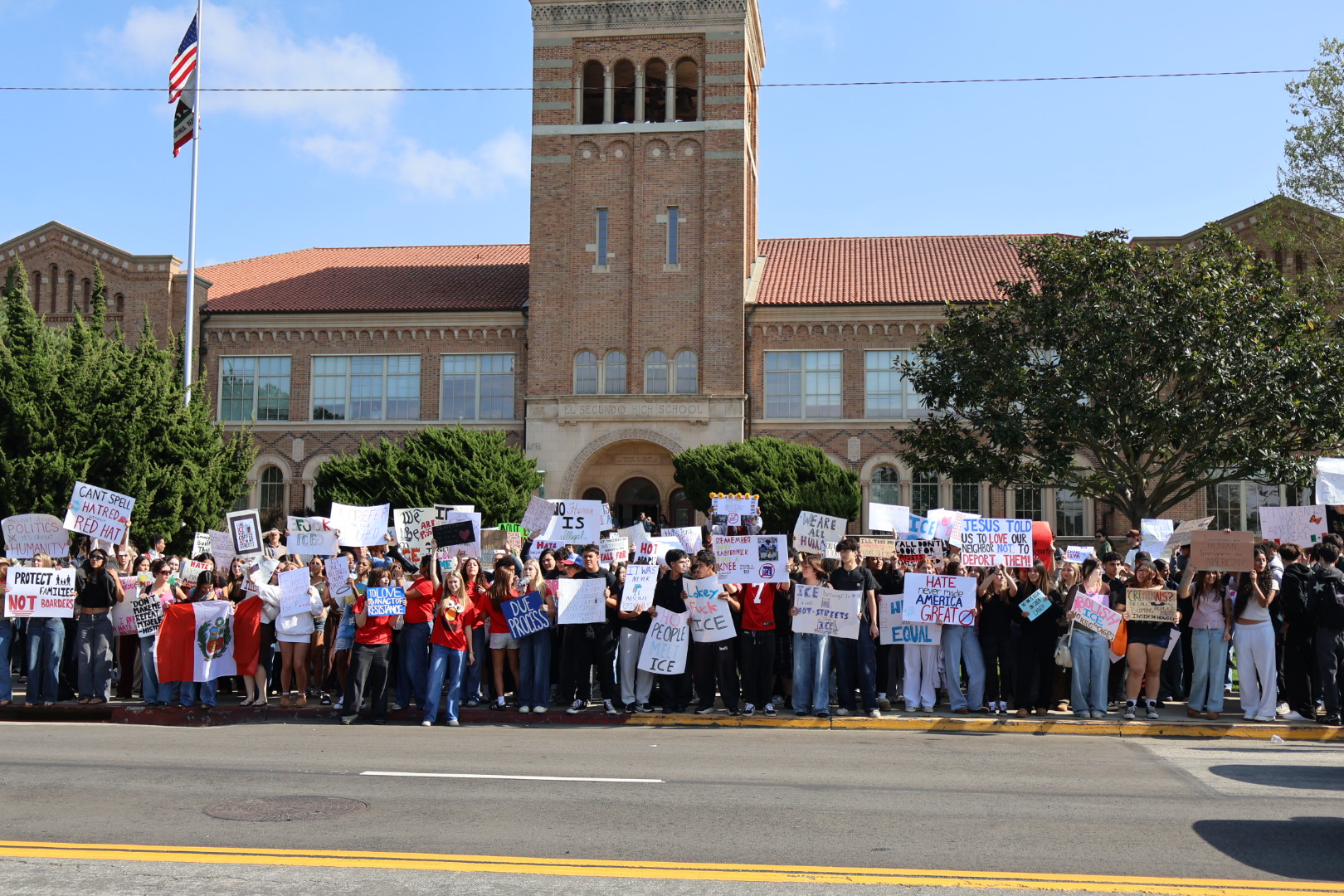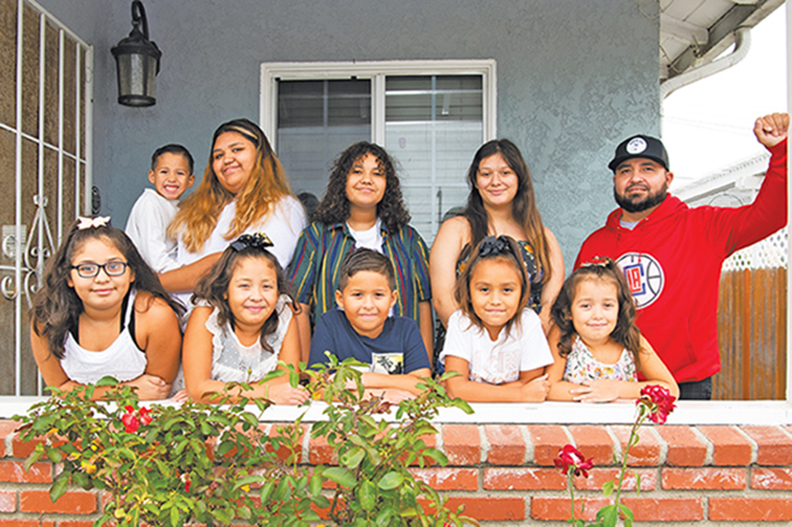
Rest has never been a priority for Rico De Alba, the manager and bartender at Shellback Tavern in Manhattan Beach. Long used to working late nights and lengthy shifts, lately he has been rising well before dawn. Every morning, he and his wife Guissell prepare breakfast for nine, seven of whom need to be ready for a day of distance learning by 7:15 a.m.
The ritual was established earlier this year, after Guissell’s brother Marlon Blandon died of COVID-19, and De Alba and his wife took in Blandon’s five children — James, 3; Luz, 5; Alia, 9; Jocelyn, 10; and Melody, 14. De Alba’s four-bedroom Lawndale home, which already housed four children of his own — J.R., 6; Hayden, 6; Hazel, 12; and Hayley, 17 — and a boisterous dog named Stitch, became even more full of life.
The change came as the coronavirus that had taken De Alba’s brother-in-law was roaring through its second wave, challenging the medical system throughout California and straining the bonds of affection even among smaller families in more spacious homes. Restrictions to contain the pandemic had threatened De Alba’s livelihood; the restaurant industry remains in a crisis, and many establishments are on the brink of closure.
Despite the changes and challenges that adopting his brother-in-law’s children would mean, De Alba said that his family didn’t need to discuss the issue. It was less a decision to be made, he said, than something that was already understood on an instinctual level.
“We didn’t really have any one conversation. We knew we had to take them the moment he passed. There was no doubt in our minds. As soon as we found out that her brother died, it was, ‘We’re taking the kids.’ We knew right away. We didn’t even talk about it,” De Alba said. “It’s one of those things that you just know.”
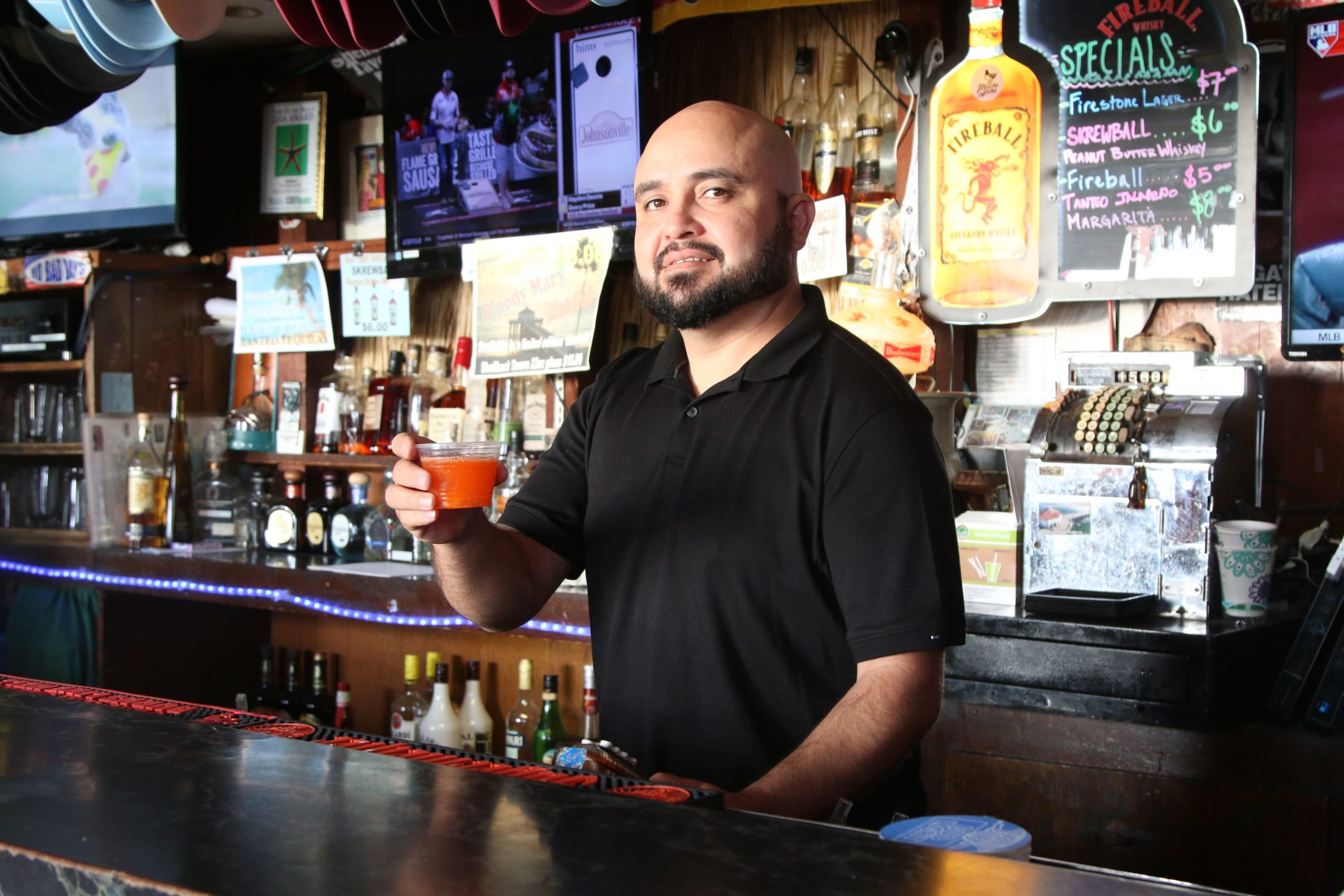
For a person whose job requires him to be personable and outgoing, De Alba is often quiet and reserved, and he steeled himself for the new responsibility. He sold his beloved Jeep Wrangler and bought an older Chevy Suburban — license plate “2Fantas,” after the orange-tinted drink that has become his Shellback trademark — in order to be able to ferry more of his expanded family. But eventually word began to spread.
Among those he told was Tim Graham. The former South Bay resident now living in New England, was a Shellback regular for years. He kept in touch with De Alba even after returning to the East Coast, and learned of his friend’s decision to adopt his brother-in-law’s kids in a phone conversation over the summer. Like others interviewed for this story, Graham said that he was impressed but not surprised with De Alba’s generosity.
“The one thing with Rico is, he is always doing things for other people,” Graham said.
De Alba, who is regularly named “Best Bartender” in Easy Reader’s annual Best of the Beach poll, has a special ability to sense when people are down or struggling, and a knack for bringing people together, Graham said. He always recommends Shellback to friends from the East Coast, and, countless times, Graham’s phone has buzzed with a text from someone passing through the South Bay for the first time. It is invariably a selfie taken with De Alba, the two of them wearing easy grins as if they have known one another for years.
Every summer Graham runs a beach volleyball tournament to raise money for charity, and De Alba would arrange for Shellback to donate hats and T-shirts for players. After a day in the sun and sand, players would head to Shellback for celebratory drinks and food, and De Alba would always remember to set aside a couple tables for them.
“He made us feel like it was our place. But I know a million other people who felt like it was their place,” Graham said.
This year, the coronavirus pandemic put a halt to the volleyball tournament, but Graham still found a cause to raise money for: De Alba’s newly expanded family. In August, Graham made a Facebook announcement about the virtual fundraiser. Within weeks he had raised more than $6,000. Word continued to get around, and on Sept. 27, Manhattan Beach residents Grant Chalmers and Nicole Rosen started a GoFundMe on De Alba’s behalf. As of Tuesday morning, more than 800 people had contributed, raising more than $80,000.

De Alba said that he was taken aback by the generosity. He seemed unprepared for the fact that his years of working in a bar would endear him so closely to so many.
“I don’t know how to describe it. That thing went crazy,” he said of the GoFundMe. “Knowing that someone like me, that just working at Shellback for so long would make so many people want to help out…”
De Alba grew up in Southern California, and began his restaurant career at Grunions Sports Bar and Grill on Sepulveda Boulevard. In the ‘90s, his older brother was working as a cook at Grunions, which was then owned by Bob Beverly.
“I saw this young kid hanging around the back door,” Beverly said of De Alba. “He would help his brother take out the trash. Eventually I thought, ‘Hey why don’t we just hire this guy?’”
There was little hint from De Alba’s early tenure of the meme-worthy nightlife icon of the future. He began as a dishwasher, Beverly said, and was quiet and shy. He always worked hard, but it took some convincing to get De Alba out on the floor among the customers to buss tables.
As is common with desirable bartending jobs, De Alba reached his current position through a journeyman-like ascent. De Alba started working at Shellback in 2000, shortly after Beverly took it over. He began as a cook. The kitchen would shut down and his shift would end for the evening just as the late-night crowd began to thicken. He would then spend a few more hours working as a barback, learning how to pour drinks in the process.
“He was trained to work in emergencies. Now he runs the place so I can hang out in Cabo,” Beverly joked.
Manhattan Beach resident Dan Partelow, now the vice president for the Craft Brew Alliance, was a vice president and general manager at Anheuser-Busch when he first got to know De Alba. As the head bartender at one of the busier bars in Southern California, Partelow would often speak with De Alba about brands and marketing. If it was busy when Partelow came in, he would have a chance to watch De Alba work.
“I would sit back back and watch people come in, and the first thing they would want to do is make eye contact with Rico. And when they leave — you don’t just get up and walk out of Shellback; you get up to see Rico and say goodbye,” Partelow said.
It was rare for De Alba to have a moment away from work and family obligations, but occasionally he would go with Partelow and other beverage company executives to Dodgers or Rams games. In these moments, Partelow realized that De Alba’s demeanor inside Shellback was not just a routine — it was who he really was.
“He’s as genuine and as friendly when you’re out with him as he is when he’s working. It’s not made up, he doesn’t put on a face when he’s working,” Partelow said.
Partelow spoke to De Alba not long after Blandon had been admitted to the hospital. Blandon’s children, who had been living with him in Utah, were already in Southern California, and had made plans to spend the summer at De Alba’s house. It was clear from the conversation, Partelow said, how much the responsibility weighed on De Alba.
Blandon began feeling ill at some point early June, De Alba said; he was the first person De Alba knew to have contracted COVID-19. He knew that his brother-in-law suffered from diabetes, a preexisting condition that puts people at elevated risk of serious infections, but thought Blandon would be fine.
As was the case with hospitals in Southern California, the risk of transmission and the threats to hospital capacity meant that no one was allowed to see Blandon once he was admitted. In a routine that has become grimly familiar, he and De Alba kept in touch every day via Facetime.
“At first he seemed normal. But he couldn’t get rid of the fever. And then it hit him one day: He was fine, then it was like he fainted. And then they put him on a ventilator,” De Alba said. Blandon died July 10, less than a week after being put on the ventilator.
De Alba was extremely close to his wife’s brother, describing him as a best friend. (Guissell, De Alba’s wife, declined to be interviewed for this article, citing the emotional toll of her brother’s death.) They shared a bond that made caring for Blandon’s kids after his passing feel natural.
“I don’t know how to explain it…. You know when someone senses something? He knew, he always knew. ‘If anything happens to me,’ he would joke, but it wasn’t a joke, ‘I want you to take care of my kids.’ Even before all of this happened,” De Alba said, referring to the pandemic. “That’s how close we were.”
Blandon and his wife Maribel were in the process of separating before he became ill, De Alba said. In conversations after Blandon’s passing, he said, she blessed the decision for the children to stay in Southern California.
“With the passing of my brother-in-law, she’s struggling out there. She’s out of a job, she knows that the kids are in a better place out here,” De Alba said.
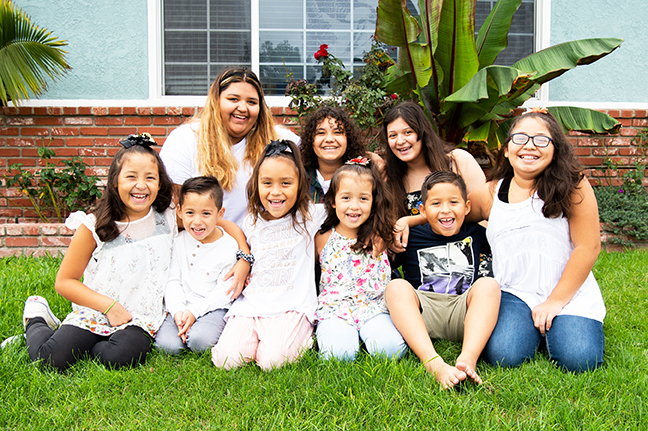
Blandon’s children were already close to their cousins, which made the move much easier. The local school district has provided each of them with a computer, which makes school easier, although as with most families, WiFi can be spotty. In their spare time, there have been trips to the beach and bike rides on The Strand. Somehow, De Alba has managed to find space for everyone without resorting to bunk beds.
Melody, Blandon’s 14-year-old daughter, said that she doesn’t mind the lack of space to herself. The apartment where she lived with Blandon and her siblings in Utah was also crowded, and she would feel lonely without being surrounded by family. She said she wouldn’t want to live anywhere else.
“I would be right here. There’s nowhere else I could think of to go,” she said.
Things, of course, are hardly easy at Casa De Alba. Along with the immediate needs of another car, food and school supplies, the cost of college looms for Hayley, and Melody a few years later.
“A bartender is the aristocrat of the working class,” the actor Bryan Brown says in the 1988 film “Cocktail.” For those like De Alba, who combine a job at a busy establishment with the discipline to save money and avoid the perils of partying, it’s possible to raise a family and maybe send kids to college. Or at least it long has been. Count that as yet another aspect of our society the coronavirus has thrown into question.
Shellback sits at the bottom of Manhattan Beach Boulevard, positioned like a flipper in a pinball machine that stops those who might be inclined to bounce down toward the sand. Especially late at night, it is known for the kind of crowded, standing-room-only conditions that now seem impossible.
De Alba remembers that, around 11:45 a.m. on Saint Patrick’s Day, Shellback was forced to close its doors because of the pandemic. They would not reopen for two months. (De Alba immediately began working another job, in construction, with his brother Alex, an Inglewood resident.) But by late May, declining COVID-19 caseloads in Southern California and pressure from local businesses put pressure on county officials to hasten the pace of reopening.
“They said we need to flatten the curve, and we flattened it like nobody has ever flattened a curve,” Michael Zislis, owner of Shade Hotel, Rock and Brews and other area restaurants, said at a May 19 rally in downtown Manhattan Beach.
Exactly one week later, the county began allowing restaurants to reopen for in-person dining. (Shellback and many other businesses that are commonly perceived to be “bars” were included, because their liquor license from the state Department Alcohol Board requires them to serve food.) This decision — and the rush of indoor revelry that ensued — is now widely blamed for fueling a “second wave” of the pandemic, one that proved larger than the initial wave in April. Ahead of the Fourth of July weekend, Gov. Gavin Newsom closed bars and halted indoor-dining statewide, but it was too late: Cases, deaths and hospitalizations surged before finally beginning to decline in August.
“Simply put, closing the bars worked,” L.A. County Public Health Director Barbara Ferrer said Aug. 3.
Although infection rates in the area have since stabilized, indoor dining remains prohibited in Manhattan Beach and the rest of the county. Things have been slightly better for Shellback since the city permitted them to build a larger dining deck to accommodate more tables. But last weekend, with its cooler temperatures and grayer skies, was slow, and suggested that the coming winter months will prove challenging.
Beverly said he has sold a house in order to keep Shellback up and running, in part because of a sense of obligation to employees like De Alba.
“He has so much to be concerned about now. The bar has to come second, because family first comes first. At a time like this, how can you be worried about whether we have enough hamburger meat for the weekend?” Beverly said.
De Alba acknowledged the particular difficulty the pandemic has posed for his profession. The outpouring of generosity has temporarily eased some of the concern. And De Alba also seems cooly aware of his own resourcefulness and capacity for hard work. But for the most part he views taking in Blandon’s children as unconnected to any challenges he happens to be enduring, a view shared by the rest of his household. Haley, the oldest kid at 17, described welcoming her five cousins to her home as a matter beyond choice, a kind of sacred obligation.
“Family is all you have. Family will always be there, no matter what,” she said. “It is taught to us that as family we all help each other in a time of need. And … how can I put it … Even if I’m struggling, I’m going to help you no matter what. If you need help the most, my needs are going to be put to the side, and I’m going to help you.”
To contribute to De Alba’s GoFundMe, click here. ER


